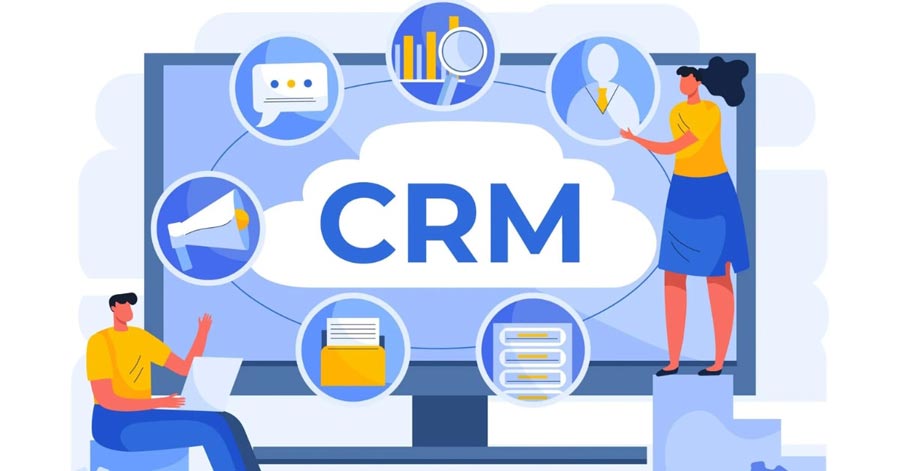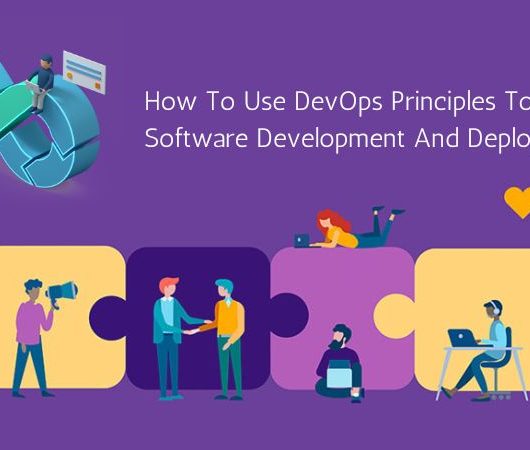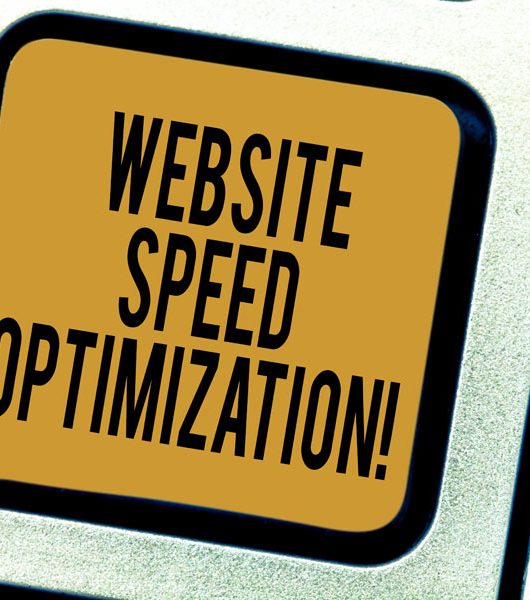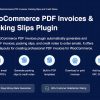In today’s digitized era, customer acquisition is a big challenge as the competition is getting fiercer each day. Simply generating leads is just not enough. Businesses require strategic techniques to nurture leads and translate them into sales. Here, lead generation CRM software is your secret weapon to streamline the entire sales process. Understand what this tool does and what are your best options to transform your sales pipeline!
Today the business landscape is ferociously competitive. Generating leads is winning half battle. Converting these leads into sales requires nurturing with an efficient and strategic process.
This is where lead management CRM (customer relationship management) software kicks in. This powerful tool automates repetitive tasks, streamlines your sales pipeline, centralizes customer data, and even uses AI (artificial intelligence) to boost conversion rates.
The only catch is, choosing the right software among innumerable options.
If you go on the hunt for the best lead management CRM software, you will get thousands of options in user-friendly solutions and feature-rich platforms. Here, choosing the right tool for your business can be overwhelming.
To help you pick the best for your business, we have curated a list of 08 lead management CRM software from the market. We will explore the key features, strengths, weaknesses, and pricing tiers of each option to help you select the perfect fit for your business.
Let’s get started!
08 Best Lead Management CRM Software For 2024
CRM is one of the finest tools to automate business operations. CRM for solar companies can help them expand market penetration, improve efficiency, and grow revenue. Here is a list of the best lead management CRM software to consider in 2024.
Pipedrive
Pipedrive is one of the best sales pipeline CRM software renowned for its beginner-friendly user interface. This tool focuses on visualizing the entire sales process. Pipedrive is best for small to mid-sized businesses. If you are looking to streamline your sales process and close more deals, Pipedrive is the right choice.
Key Features of Pipedrive:
- Drag-and-drop interface and clear overview of sales progress in different stages.
- Ease of capturing and managing leads through several channels including web forms and email marketing.
- Manage and track all interactions with contacts and leads including meetings, calls, and emails.
- Automate repetitive tasks like assigning leads to sales representatives and sending follow-up emails.
- Customizable reports and dashboards.
- Seamless integration with several business tools like accounting software and email marketing platforms.
Pros of Pipedrive:
- User-friendly interface.
- Ease of tracking leads.
- Customization of fields, sales stages, and pipelines.
- Competitive pricing makes it best for budget-conscious businesses.
- Mobile app to manage sales pipeline and access key features on the go.
Cons of Pipedrive:
- Focus more on sales; lack advanced marketing automation features.
- Comparatively less robust reporting and analytical features.
- Not ideal for large organizations with complicated needs.
Pricing Plans of Pipedrive:
- 14-day free trial.
- The Essential plan is $14 per month/user.
- The Advanced plan is $29 per month/user.
- The Professional plan is $49 per month/user.
- The Power plan is $69 per month/user.
- The Enterprise plan is $99 per month/user.
2. Zoho CRM
Zoho CRM is another feature-rich CRM tool renowned for its scalability and affordability. This tool is ideal for businesses of all sizes. It offers a comprehensive set of tools to manage sales pipelines, nurture them, and improve customer relationships.
Key Features of Zoho CRM:
- Clear progress tracking and managing sales pipeline.
- Ease of capturing leads from various sources, qualifying them, and assign to sales representatives for nurturing.
- Create detailed contact profiles, track interactions, and segment each for targeted campaigns.
- Automate repetitive tasks like sending follow-up emails, lead scoring, and assigning tasks based on priority or triggers.
- Directly monitor social media interactions and engage with leads.
- Customizable reporting and analytical capabilities.
- Seamless integration with other Zoho products and other third-party business tools.
Pros of Zoho CRM:
- Comparatively more affordable solutions.
- Cater to businesses of all sizes.
- Provide a comprehensive suite of lead management tools.
- Customization of fields, sales stages, and dashboards.
- Seamlessly integrates with Zoho products as well as other third-party tools.
Cons of Zoho CRM:
- Comparatively steeper learning curve than other competitors.
- Extensive customization options can overwhelm smaller teams.
- The free plan comes with basic functionalities.
Pricing Plans of Zoho CRM:
- Free for up to 3 users.
- The Standard plan is $14 per month/user.
- The Professional plan is $23 per month/user.
- The Enterprise plan is $40 per month/user.
- The Ultimate plan is $52 per month/user.
3. HubSpot CRM
HubSpot CRM is another popular option in lead management CRM software. It offers a robust free tier with core CRM functionalities. This tool caters to businesses of all sizes. Its user-friendly interface and scalable solution make it best for beginners.
Key Features of HubSpot CRM:
Free plan features:
- Create detailed contact profiles, store communications, and segment each for targeted campaigns.
- Customizable stages allow clear progress monitoring in the sales pipeline.
- Create and send basic email campaigns to engage and nurture leads.
- Assign tasks and track the progress of each team member.
- Mobile app to access functionalities and key features on the go.
Paid plan features:
- Automate repetitive tasks like sending follow-up emails, lead scoring, and assigning tasks.
- Live chat support to engage leads and website visitors.
- Automate multi-channel marketing campaigns for nurturing leads and increasing conversions.
- Report and analytics features to gain deeper insights into sales and marketing performance.
- Seamless integration with various business tools.
Pros of HubSpot CRM:
- The free plan is best for small businesses and startups.
- Clean and user-friendly interface.
- Grows with business needs.
- Seamlessly integrates with other HubSpot products and other business tools.
Cons of HubSpot CRM:
- Limited features in the free plan.
- Fewer customization options.
- High price for accessing advanced features.
Pricing Plans of HubSpot CRM:
- Free forever plan with basic features.
- The Starter plan is $50 per month.
- The Professional plan is $600 per month.
- The Enterprise plan is $1200 per month
4. Freshsales
Freshsales is another popular lead management CRM tool that caters to businesses of all sizes. It is a cloud-based CRM solution well-known for its intuitive and user-friendly interface.
Key Features of Freshsales:
- Provides AI-powered lead scoring based on various factors including website behavior.
- In-built assistant ‘Freddy’ provides data insights, schedules meetings, and suggests the next course of action.
- Customizable web forms to capture leads from the website.
- Clear progress monitoring through customizable stages.
- Seamlessly integrates with email for automatically logging emails, personalizing outreach, and tracking communication.
- Make and receive calls to improve the efficiency of communication.
- Built-in chat feature to engage leads and website visitors.
- Report and analytical tools offer insights into sales performance.
- Integration with several business tools and platforms.
Pros of Freshsales:
- AI-powered features for automating various tasks.
- Clean and intuitive user interface.
- Scalable CRM solution.
- Seamlessly integrates with Freshworks products.
Cons of Freshsales:
- The free plan comes with basic reporting functionality.
- Not ideal for businesses seeking extensive customization.
- Shorter track record.
Pricing Plans of Freshsales:
- The Free Forever plan (up to 3 users) comes with basic CRM functionalities.
- The Growth plan is $15 per month/user.
- The Pro plan is $35 per month/user.
- The Enterprise plan is $69 per month/user.
5. ActiveCampaign
ActiveCampaign is another best CRM platforms for managing sales and marketing activities. This tool caters to small to medium-sized businesses. If you are seeking comprehensive CRM solutions to nurture leads and increase conversion, ActiveCampaign is the right pick.
Key Features of ActiveCampaign:
- Automate multi-channel marketing campaigns to nurture and engage leads.
- Ease of identifying the most promising leads based on email engagement, website visitors, and other aspects.
- Automate repetitive tasks.
- Customizable sales pipelines to manage and track contacts and deals.
- Landing page builder feature to create high-converting pages.
- Drag-and-drop editing tools to design and send personalized email campaigns.
- Gain insights into sales and marketing performance.
- Seamless integration with several business tools and platforms.
Pros of ActiveCampaign:
- Manage sales and marketing activities in a single platform.
- Clean and intuitive user interface.
- Scalable solution.
Cons of ActiveCampaign:
- Not ideal for businesses looking for extensive customization.
- Expensive pricing structure.
Pricing Plans of ActiveCampaign:
- The Lite plan is $29 per month.
- The Plus plan is $49 per month.
- The Professional plan is $79 per month.
- The Enterprise plan requires custom pricing.
6. Shape
Shape is another good option to manage your sales pipeline and customer interactions. This tool is specifically designed for businesses that depend on Google Workspace apps like Drive, Gmail, and Calendar. It integrates with these tools to manage your sales process within the already familiar Google ecosystem.
Key Features of Shape:
- Access various functionalities directly with Google Drive, Gmail, and Calendar for seamless workflow.
- Clear progress monitoring through customizable sales stages.
- Capture leads from several sources including email integration with Gmail and web forms.
- Create detailed contact profiles, store communication, and segment each for targeted campaigns.
- Email tracking to understand how and when recipients open and interact with emails.
- Track all communication with contacts and leads synchronized with Google Calendar for easy scheduling.
- Report and analytical tools to gain insights into sales performance.
- Seamlessly integrates with Google Workspace Apps and other third-party tools.
Pros of Shape:
- Best option for businesses relying on Google Workspace.
- Intuitive and clean user interface.
- Competitive pricing plans.
- Streamlines sales management tasks.
- Perfect for teams new to CRM.
Cons of Shape:
- Lack of advanced automation, in-depth reporting, and marketing tools.
- Small user base.
- Fewer customization options.
Pricing Plans of Shape:
- Free trial for up to 3 users.
- The Starter plan is $10 per month/user.
- The Pro plan is $20 per month/user.
- The Enterprise plan requires custom pricing.
7. Close CRM
Close CRM is another popular lead management CRM tool specifically designed for the requirements of the sales team. This tool prioritizes features that automate repetitive tasks, streamline communication, and provide a clear overview of the sales pipeline.
Key Features of Close CRM:
- Make and receive calls, and send and track emails within this CRM.
- Automated dialing feature and pre-call scripts for sales representatives.
- The visual pipeline displays activities and communications related to leads.
- Capture leads from several sources and assign them to the sales team.
- Create pre-written email templates and automate each email sequence.
- Track all interactions with contacts and leads.
- Gain insights into sales performance.
- Seamlessly integrates with several business tools.
Pros of Close CRM:
- Built-in email, calling, and automation tools.
- User-friendly interface.
- Competitive pricing plans.
- Mobile app to manage and access key functionalities on the go.
Cons of Close CRM:
- Lack of marketing automation, extensive customization options, and deep reporting features.
- Limited integration.
Pricing Plans of Close CRM:
- 14-day free trial.
- The Starter plan is $49 per month/user.
- The Basic plan is $69 per month/user.
- The Pro plan is $99 per month/user.
- The Enterprise plan requires custom pricing.
8. Salesforce Sales Cloud
Salesforce Sales Cloud is one of the leading CRM platforms in the world. This tool is renowned for its scalability, customizability, and comprehensive suite of features. This tool caters to businesses of all sizes. It manages the entire sales lifecycle effectively.
Key Features of Salesforce Sales Cloud:
- Customizable stages to track leads and deals.
- Ease of capturing leads from several sources, qualifying them, and assigning scores.
- Automate repetitive tasks.
- Create detailed profiles for your contacts and accounts.
- Foster collaboration between this CRM tool and sales representatives.
- Mobile app to manage sales pipeline and assess functionalities.
- Gain insights into sales performance.
- Seamlessly integrates with several business tools and platforms.
Pros of Salesforce Sales Cloud:
- Various features to manage the entire sales process.
- Scalable solution.
- Highly customizable.
- Strong integration capabilities.
Cons of Salesforce Sales Cloud:
- Steeper learning curve.
- Expensive pricing tiers.
- Takes a lot of time to implement.
Pricing Plans of Salesforce Sales Cloud:
- The Essential plan is $25 per month/user.
- The Professional plan is $75 per month/user.
- The Enterprise plan is $150 per month/user.
- The Unlimited plan requires custom pricing.
Concluding Thoughts
Choosing the right lead management CRM software is crucial for all businesses.
In this post, we explored popular CRM tools, each offering specific features and pricing tiers. Consider your needs, budget, team size, software integration capabilities, etc. before picking one.
Remember, the perfect-suited CRM tool should boost your efficiency, aid your sales team, and drive success for your business.











